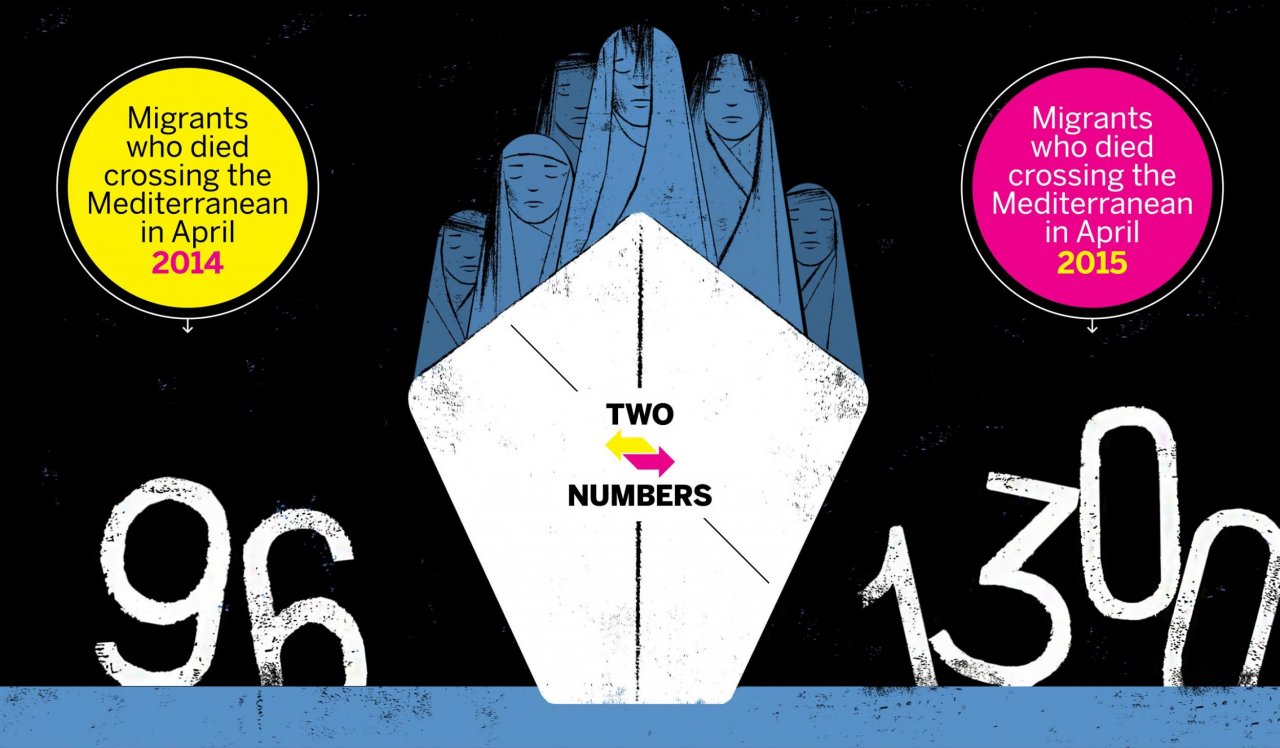
April 2015 was the deadliest month in history for migrants crossing the Mediterranean: 1,300 people are known to have drowned while trying to make the journey, compared with 96 in April 2014.
The mass exodus of refugees from the civil war in Syria, where the largest number of migrants hail from, is one of the driving factors behind the steady stream of boats. In 2014, 219,000 migrants from Africa and the Middle East boarded boats to Europe. At least 3,500 of them died.
While economic migrants from countries like Senegal and Ivory Coast also cram onto rickety boats, the vast majority are refugees. Eritrea, Afghanistan, Somalia and Nigeria are among the conflict-ridden countries of origin for many of them.
In the first four months of 2015, 1,750 migrants drowned—that's more than the number of people who went down with the Titanic (officially 1,513). Even more alarming is that so many died before the start of the summer season, which traditionally brings greater numbers of migrants. "The spike in April certainly comes from calmer seas and warmer weather, but what was unusual this year is that you didn't see a quiet January and February, which you usually do," says Kathleen Newland, head of humanitarian protection work and co-founder of the Washington, D.C.–based Migration Policy Institute.
Humanitarian groups are bracing themselves for a warm-weather influx. From May until October, international medical organization Doctors Without Borders and the Migrant Offshore Aid Station are planning to deploy a 131-foot-long rescue ship in the Mediterranean to treat sick migrants and rescue those in danger.
European leaders scrambled to take action after the most recent tragedy, the capsizing of a boat off the Libyan coast that killed more than 800 people. Their plan includes taking tougher action on smuggling rings that facilitate unsafe passage to Europe and a tripling of the funding for the E.U.'s seafaring presence, operations Triton and Poseidon. But those operations are focused on border control rather than search and rescue. Mare Nostrum, a yearlong search-and-rescue operation run by the Italian navy that assisted more than 168,000 migrants between October 2013 and October 2014, was canceled, partly due to complaints that it encouraged migration.
"The myth that Mare Nostrum acted as a 'pull-factor' is…dispelled by figures which show that the number of refugees and migrants attempting to cross into Europe by sea has increased since the end of the operation," Amnesty International said.
About the writer
Before joining Newsweek, Lucy Westcott was an editorial fellow at The Wire. Previously a United Nations correspondent for the Inter ... Read more














